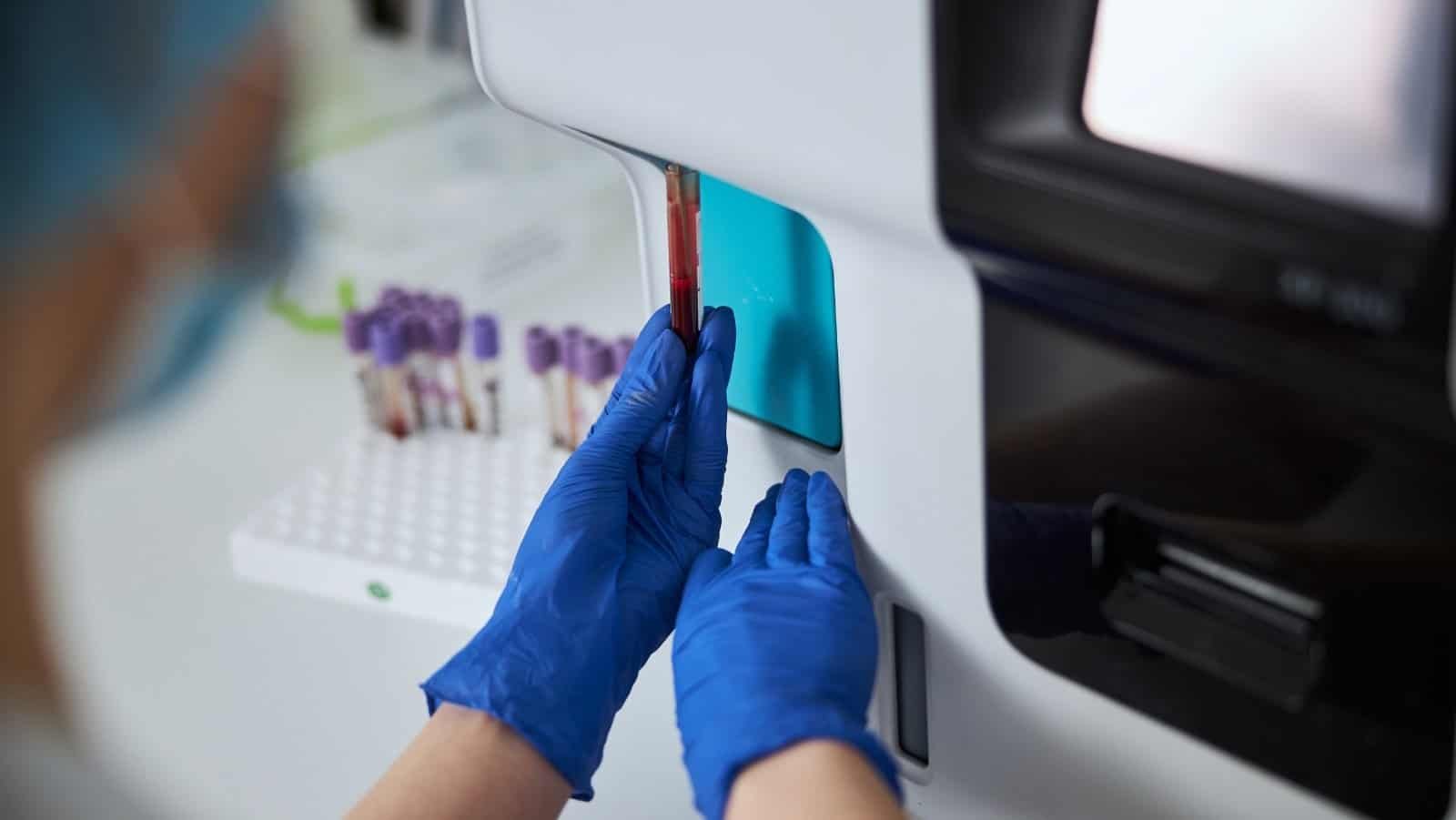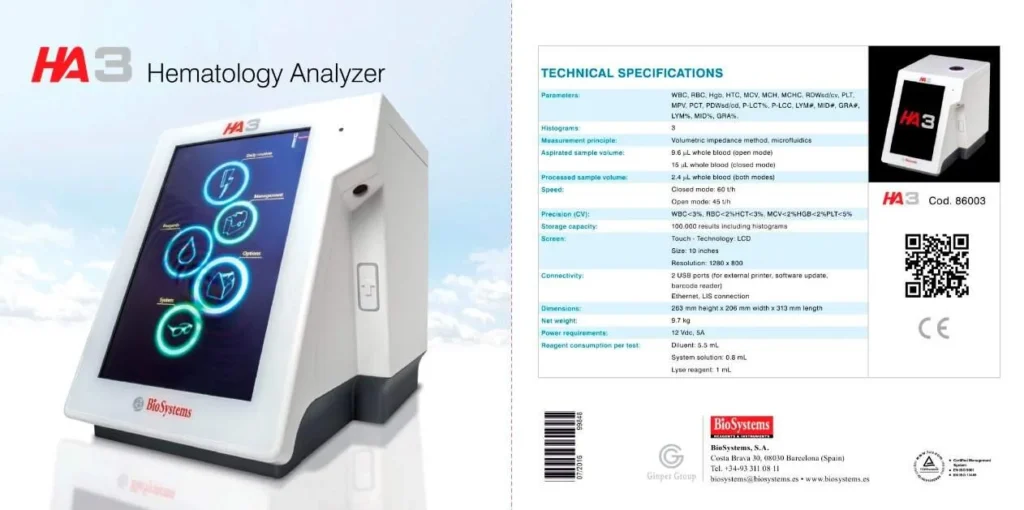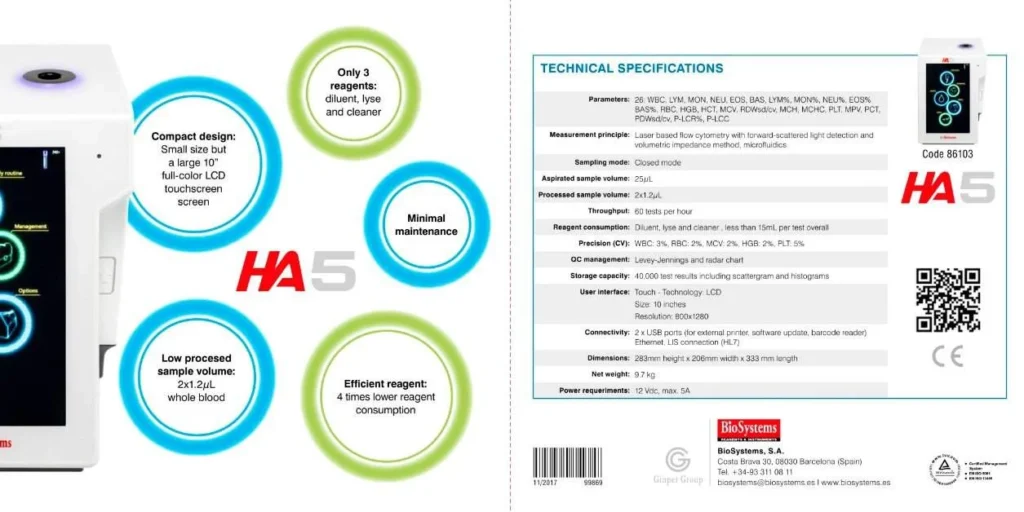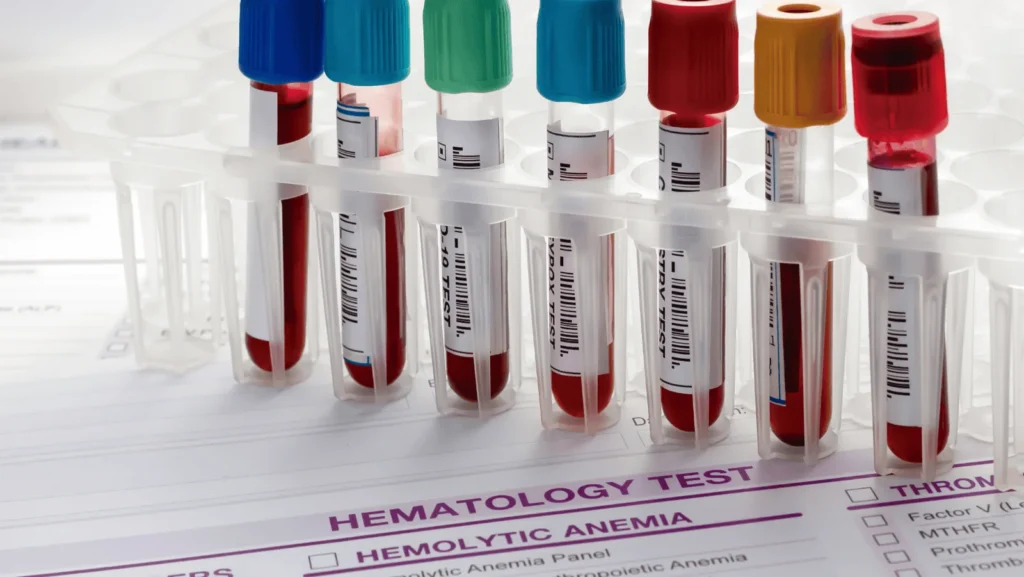


Hematology analyzer machines are critical tools in clinical laboratories, aiding in the diagnosis and monitoring of various blood-related disorders. Given the range of available models and the rapid pace of technological advancements, selecting the right hematology analyzer can be a daunting task. Laboratories must consider several factors, including accuracy, throughput, ease of use, and cost, while also planning for future needs.
This comprehensive guide explores the key considerations when purchasing a hematology analyzer machine, providing you with the knowledge needed to make an informed decision that will benefit your laboratory's efficiency and diagnostic capabilities.
Accuracy and precision are the backbone of any reliable hematology analyzer. Inaccurate results can lead to misdiagnoses, inappropriate treatments, and serious patient harm. Precision, or the consistency of results when tests are repeated, is equally crucial. The analyzer must consistently produce results that are both accurate (close to the true value) and precise (reproducible).
Technological Considerations

Throughput refers to the number of samples an analyzer can process in a given timeframe, which directly impacts the laboratory's workflow efficiency. For high-volume labs, selecting an analyzer with high throughput is essential to maintaining fast turnaround times.
Considerations
A user-friendly interface is crucial for minimizing errors and improving efficiency. A hematology analyzer machine with an intuitive touchscreen interface and easy-to-navigate menus can significantly reduce training time and the likelihood of operator errors.
Key Features
The long-term reliability of a hematology analyzer is heavily dependent on regular maintenance and access to technical support. When choosing an analyzer, consider the manufacturer's reputation for customer service, the availability of spare parts, and the ease of performing routine maintenance tasks.
Cost is always a factor in laboratory equipment purchases, but it’s important to consider both the initial purchase price and the total cost of ownership (TCO). TCO includes not just the purchase price, but also maintenance, consumables, and any software upgrades over the life of the hematology analyzer machine.
Key Considerations

As technology evolves, so do the capabilities of hematology analyzer machines. Investing in a machine with advanced features can help future-proof your laboratory.
Advanced Features
The integration of hematology analyzer machines with EHRs is crucial for modern healthcare settings, ensuring that test results are accurately and efficiently recorded in patient records.
Benefits

The manufacturer's brand reputation is an important factor to consider when purchasing a hematology analyzer machine. Established brands with a proven track record of reliability, innovation, and customer support are often safer investments.
Reading reviews from other laboratory professionals can provide valuable insights into the reliability and ease of use of a particular laboratory equipment.

Regulatory compliance is a critical aspect of purchasing a hematology analyzer. Ensure that the analyzer you select meets all necessary regulatory requirements, both for your region and internationally.
Key Certifications
Understanding how a hematology analyzer machine performs in real-world settings is essential for making an informed purchasing decision. Manufacturers often provide case studies or testimonials that offer valuable insights into the practical benefits and challenges of using a particular analyzer.
Key Considerations

Selecting the right hematology analyzer machine is a crucial decision that can significantly impact your laboratory's efficiency, diagnostic capabilities, and overall patient care. By carefully considering factors such as accuracy, throughput, user experience, maintenance requirements, cost-effectiveness, and technological advancements, you can make an informed choice that meets both your current needs and future challenges.
Investing in a hematology analyzer is not just about acquiring a piece of equipment; it's about enhancing your laboratory's ability to deliver accurate, timely, and reliable diagnostic results. Whether you're upgrading an existing system or setting up a new laboratory, the right analyzer can make all the difference in your operations' success.
Before making a purchase, take the time to research and compare different models, consult with industry experts, and consider the specific needs of your laboratory. With the right approach, you can find a hematology analyzer that provides exceptional value, performance, and reliability for years to come.
Ready to buy your next hematology analyzer machine?